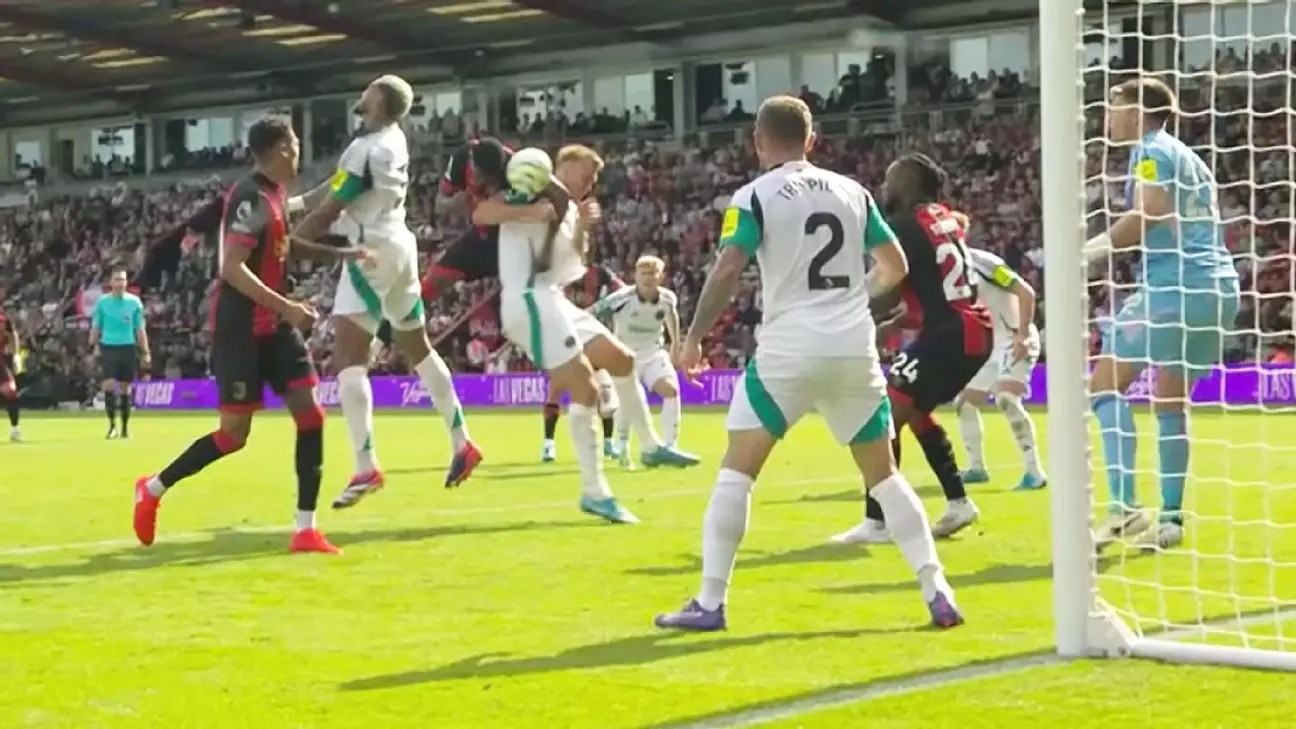The recent VAR review in the Premier League centered around AFC Bournemouth’s late winner that was ruled out against Newcastle United. The referee, David Coote, initially awarded the goal but it was checked by the VAR, Tim Robinson, for a possible handball by Dango Ouattara. The decision to disallow the goal sparked controversy as there was no definitive proof that the ball hit Ouattara’s arm. The lack of conclusive evidence raised questions about the VAR’s role in overruling on-field decisions.
The issue of handball has become increasingly complex due to recent law changes and interpretations. The ambiguity surrounding where the handball offence starts, particularly with the introduction of the “t-shirt line” as a reference point, has made it difficult for referees to make consistent decisions. The lack of clarity in defining handball has led to contentious VAR interventions and disputes over the validity of goals.
Another major incident under review involved Joelinton’s challenge on Bournemouth goalkeeper Neto. Although Joelinton received a yellow card for unsporting behavior, there were arguments for a red card due to the dangerous nature of the challenge. The VAR decision not to upgrade the card raised questions about the consistency in applying the rules, especially in cases of serious foul play and violent conduct.
Penalty Controversies: Manchester City vs. Ipswich Town
The match between Manchester City and Ipswich Town saw two contentious penalty incidents that fueled the debate over favoritism towards bigger clubs. The VAR decision to award a penalty to Manchester City for a challenge on Savinho and deny a penalty to Ipswich for a similar incident highlighted the perceived bias in officiating. The disparities in penalty calls between teams of different status further exacerbated concerns about the fairness of VAR decisions.
Offside Rulings and Goal Disallowance
Offside rulings also came into focus during the review, notably in cases like Wout Faes’ disallowed goal for Leicester City. The intricate interpretation of offside positions and the impact on goal-scoring opportunities showcased the subjective nature of VAR decisions. The need for referees to make critical judgments based on video replays added another layer of complexity to the officiating process.
VAR Verdict: Consistency and Transparency
Overall, the VAR review highlighted the ongoing challenges faced by the Premier League in ensuring consistency and transparency in officiating decisions. The need for clear guidelines on key incidents like handball, red card offenses, and penalty calls is crucial to maintaining the integrity of the game. As controversies surrounding VAR continue to surface, the footballing authorities must strive to address these issues to uphold the principles of fairness and accuracy in refereeing.


Leave a Reply